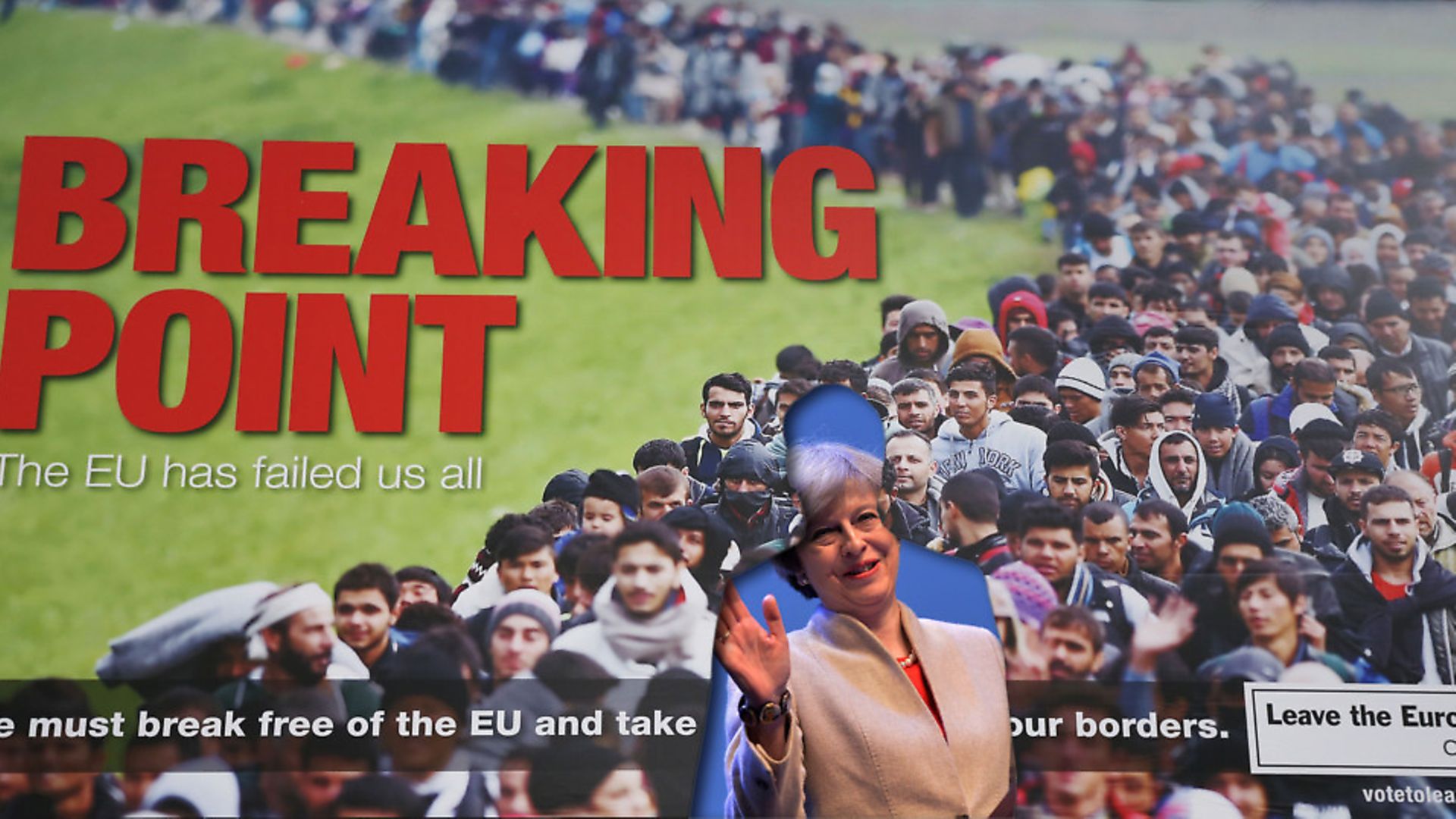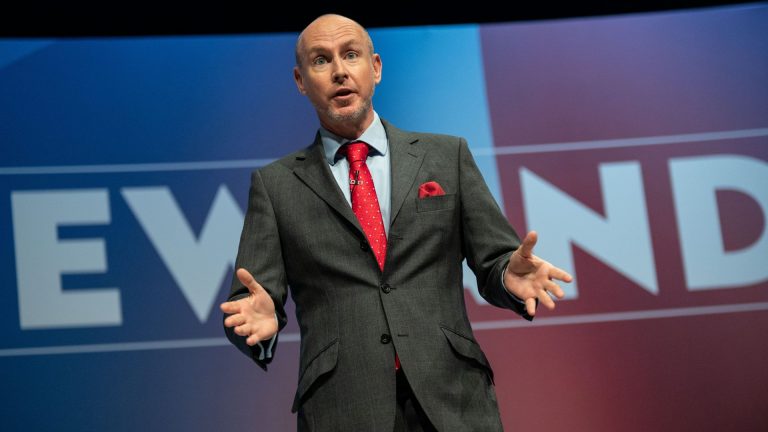
The Tories are back with their promise to reduce net migration to the tens of thousands.
By any stretch of the imagination, this target is unrealistic. However, recent history suggests that Theresa May will continue to pursue this goal, irrespective of the harm it will do the UK economy and society.
During her six years at the Home Office, immigration was May’s bugbear. She waived the flag of reform, introducing two immigration acts followed by a series of rules which dramatically curbed the rights of asylum seekers and migrants from non-EU states. She famously mocked the European Convention on Human Rights when she repeated a newspaper yarn about a migrant who was protected from deportation on account of his pet cat. She played tough yet she never met her target.
Again and again, May saw her Home Office embarrassed before the courts after it was found to have abrogated its own immigration rules. And while she kept repeating targets, May was unable to bring down migration levels, even with some of the same tools at her disposal that she is wielding today. Neither May nor her boss David Cameron had a serious grasp of the issue.
Why she failed before the courts, why was she unaware that there are lawful ways to curb migration and limit free movement of EU nationals, and why she believes she now needs the blunt instrument of withdrawal from the single market, are all indicators of her style. She remains on the same track even when faced with overwhelming evidence that her approach until now has been spectacularly unsuccessful.
Journalists have reported the lower figure of net migration standing at 273,000 for the year ending September 2016 but to get a better picture they need to look at the nature of immigration and emigration flows and the reasons behind these movements, and why the UK attracted some 596,000 migrants last year.
The dominant explanation for contemporary flows is that people move for better opportunities and as a result of wage differentials between different countries. That the UK was among the strongest economies in Europe with near full employment adds weight to the ‘pull factor’ theory.
Yet there was also much reason to welcome these arrivals. Previous research by Professor Christian Dustmann at University College London records that during the period of 2001-11, European immigrants in particular made a positive net contribution to the UK’s fiscal system, thus helping to relieve the burden on UK-born workers.
This fact – that migration drives growth – is one major reason why both withdrawal from the single market and May’s attempt to radically lower net migration are potentially so damaging. Levels cannot be cut without substantially reducing the size of the UK economy and undermining its competitiveness in the global market. Reducing the numbers as proposed would undermine the UK’s ability to retain sufficient numbers in financial services, construction, and those sectors closely aligned with research, development and innovation that has long given the country a distinct advantage.
These points have been made to May. In March, for instance, the heads of 35 Oxford University colleges pleaded with the government to guarantee the rights of EU nationals ahead of Brexit talks. They argued that the loss of EU residency rights would cause enormous damage to the university, with knock on effects for UK science and technology, and the arts.
Consecutive UK governments came to the anti-immigration party late. They failed to introduce temporal restrictions on nationals of new EU member states, unlike Germany, they continued to include students in their migration calculations, and they refused to implement Home Office rules in line with provisions included in EU law which might have given them more scope. These decisions helped to explain why both Labour and the Conservatives appeared to lose the argument to UKIP, and why we are now faced with government bent on lowing migration by withdrawing from EU freedom of movement provisions, and in effect the European Union altogether.
While the government still has not identified the model it will use after Brexit – whether a points-based system or mix of quotas and preferences, as used in the USA – it seems the only way the government can progress towards reducing immigration is through a combination of bullying to deter entry and further unlawful practices aimed at removing those already present, including those working on the frontline of the NHS.
We have already witnessed how Irene Clennell, the grandmother married to a UK national for almost 30 years, lost indefinite leave to remain after travelling back to Singapore. Then there is Harley Miller, the Australian therapist previously married to an EU national who saw her visa renewal rejected, was sacked from her senior NHS job where she worked with vulnerable children, and forced to take the government to court. Although she successfully won the right to stay temporarily in the UK, her indefinite leave to remain was not restored, and having witnessed much xenophobia in her adopted country, she decided to leave. We are constantly hearing such stories.
Under May, the Home Office circulated ‘go home’ vans and public advertisements to deter migrants from remaining in the UK. The sight of immigrant removal vehicles is now almost a daily spectacle in some areas. Contrary to her statements that protecting the rights of EU nationals in the UK is a priority, May has established herself as the chief architect of a bullying campaign that seeks reduce to immigration at all costs.
The campaign operates along four lines. First the macro-economic uncertainty caused by Brexit has weakened the pound. Migrants who came to the UK to improve their lot and to send remittances to family back home are finding their pounds are worth so much less, they may need to reconsider their reasons for being here.
Second, the message that migrants are unwelcome is coming across all too clear. Many are choosing to leave by their own accord. Two of my academic colleagues have now quit the UK. One abandoned London to take up a job in Utrecht. Announcing her decision over Facebook, she cited her concerns for her husband and the increasingly unwelcome mood, which evoked Germany in the 1930s. The other quickly settled near Turin to take advantage of her right to free movement while she could. Others are contemplating similar moves while many more are preparing their paperwork in the hope of becoming permanent residents or even naturalised Brits, as I have done.
Third, migrants are being diverted to more hospitable countries. Although the government no longer intends to include international students in net migration calculations, this decision may have less effect since the number of arrivals has fallen as a result of tight restrictions on students from Pakistan, and other countries, and increased competition for European students who are enrolling elsewhere. EU student applications to UK universities are down by more than 7%.
Fourth, the Home Office has turned up the pressure on EU nationals. Migrants who become economically inactive or have a break in their employment and are without health insurance are liable to be removed. The government is rejecting applicants for residency in record numbers. In 2016 approximately 28% of applications were turned down.
The emerging picture is that the Prime Minister and her Home Office are now engaged in an energetic war against migrants. They want people to leave the country so they can claim victory over immigration and assert that they have restored control over the UK’s borders. In spite of her promises, it seems that May is prepared to damage the economy in the hope of reducing immigration levels. In the process she is willing to sacrifice Oxford’s world-renowned scholars, see families divided up, and face further humiliation before the courts.
In spite of the removal orders and unlawful campaign of irritation and attrition, I predict the government will fail to meet its over ambitious goal and will come late to the realisation that it actually needs migrants.
Brad K Blitz is a professor of international politics at Middlesex University and senior fellow at the Global Migration Centre at the Graduate Institute in Geneva









